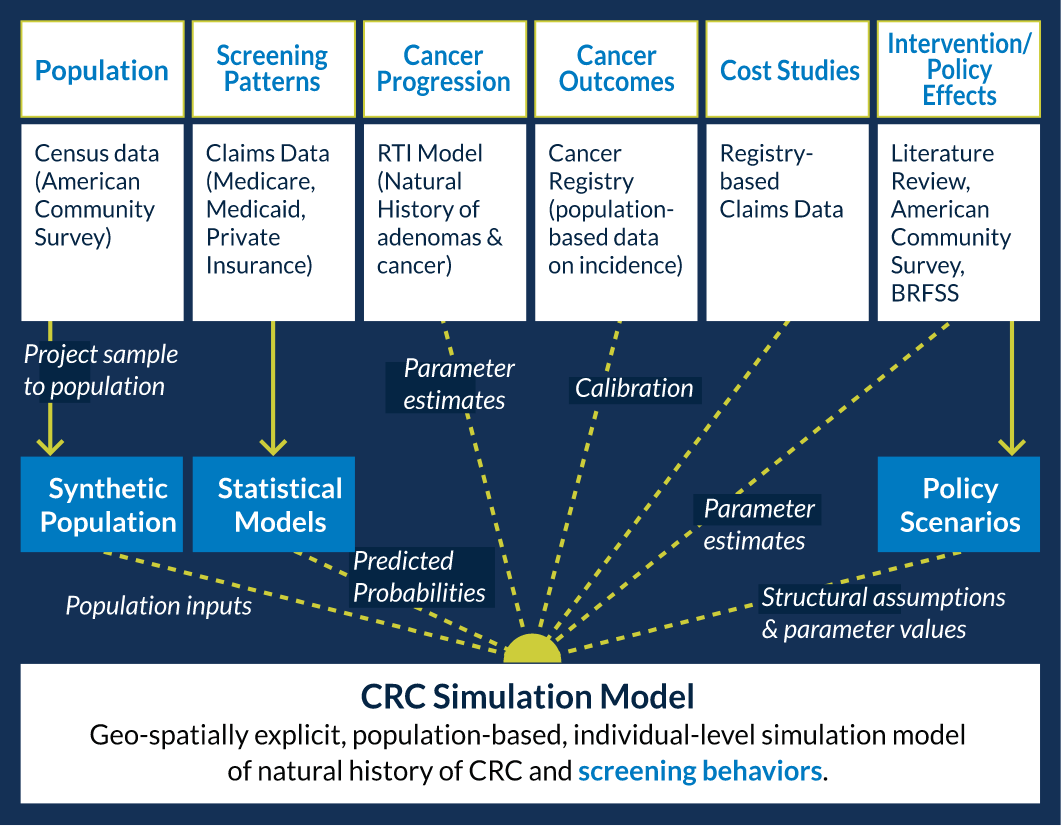Approach
We use individual-based microsimulation models to simulate colorectal cancer screening, cancer diagnosis and treatment, and costs in both North Carolina and Oregon. The simulated individuals age and experience changes in cancer status over time, and their individual-level and population-level outcomes are tracked for various screening interventions and health policy changes tested.
The models integrate the best available data on the development and progression of colorectal polyps and cancer, demographic characteristics of the state residents, baseline compliance with recommended screening and surveillance, screening test characteristics (i.e. sensitivity and specificity of colonoscopy and stool tests), and more input parameters. Model outputs include receipt of cancer screening, development of cancer, cancer deaths, years of life lost due to cancer, and costs of cancer screening and treatment. The outputs are measured for each intervention or policy scenario as compared to the status quo “screening as usual” scenario (i.e. what is expected to occur in the absence of intervention).

The model was developed by members of our team at the University of North Carolina at Chapel Hill, North Carolina State University, and Oregon Health & Science University using AnyLogic simulation software.
Additional details about our CRC PopSim model can be found in the technical supplement, available here: http://crcsim.web.unc.edu.
